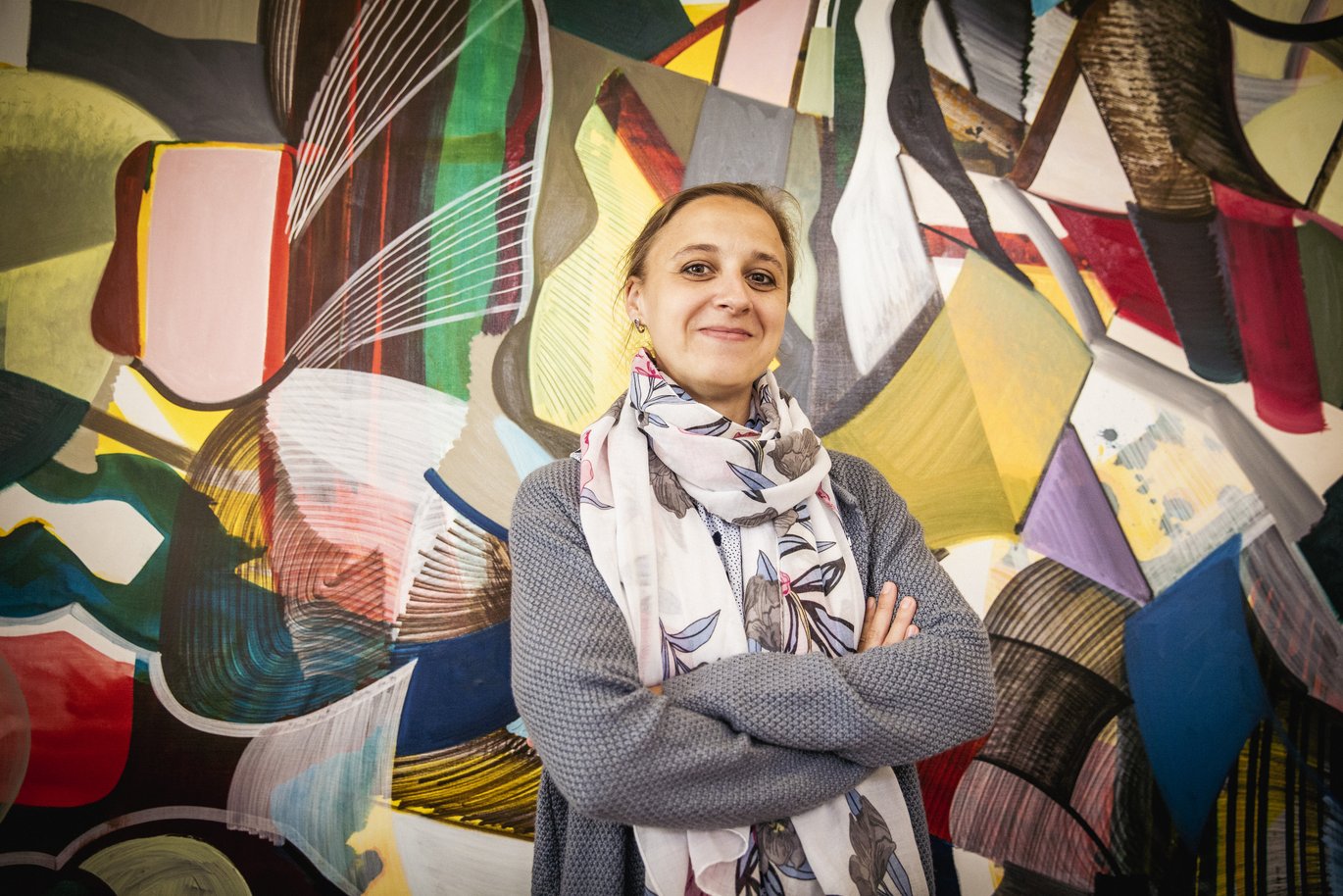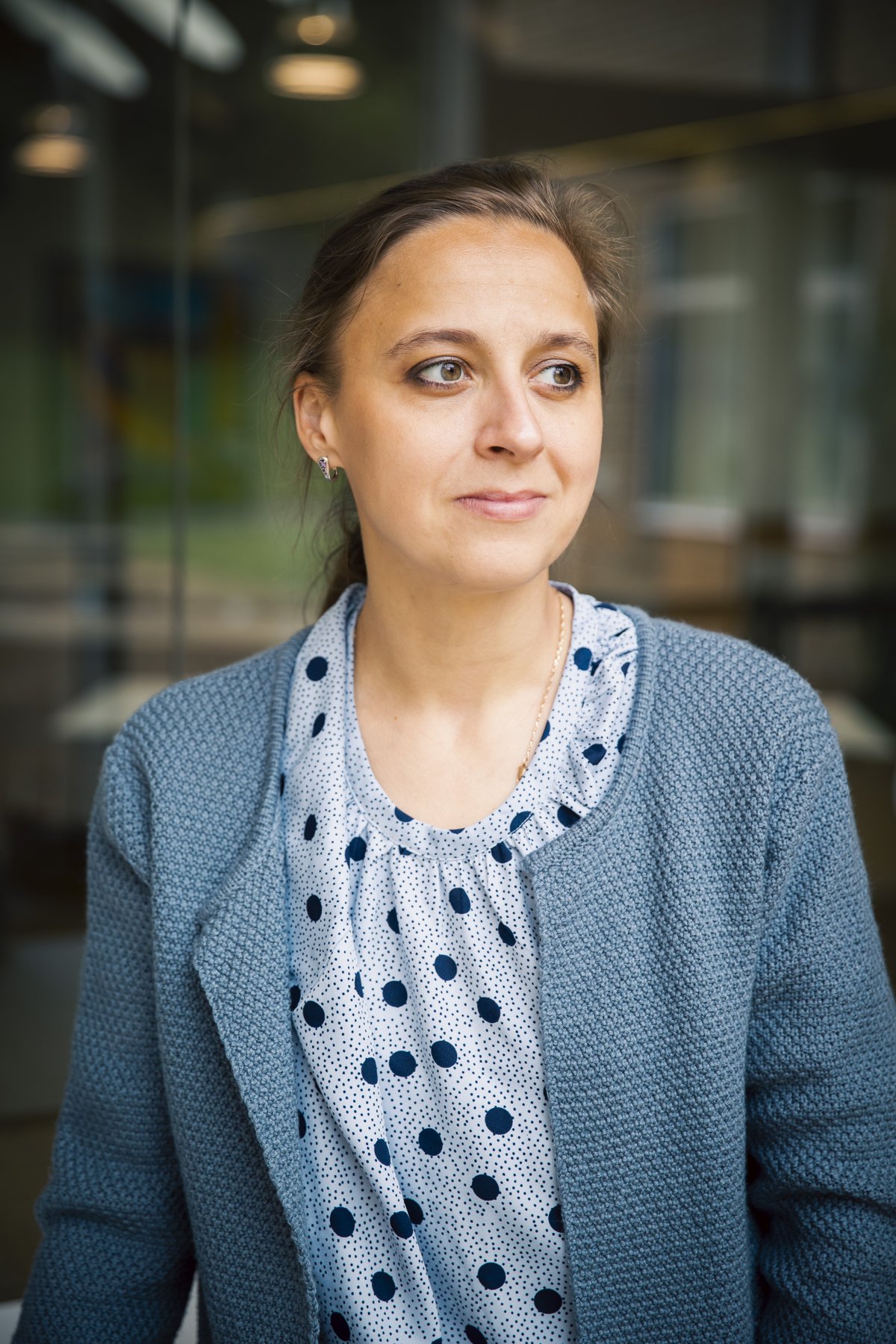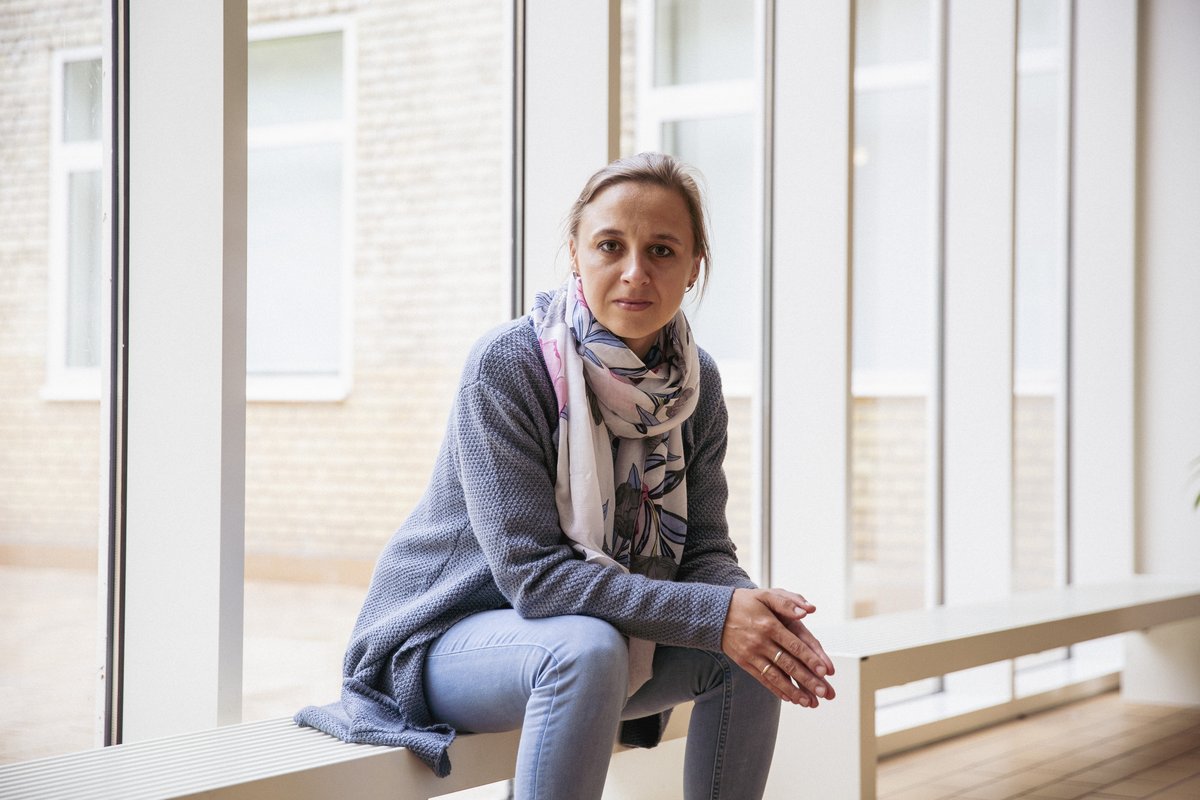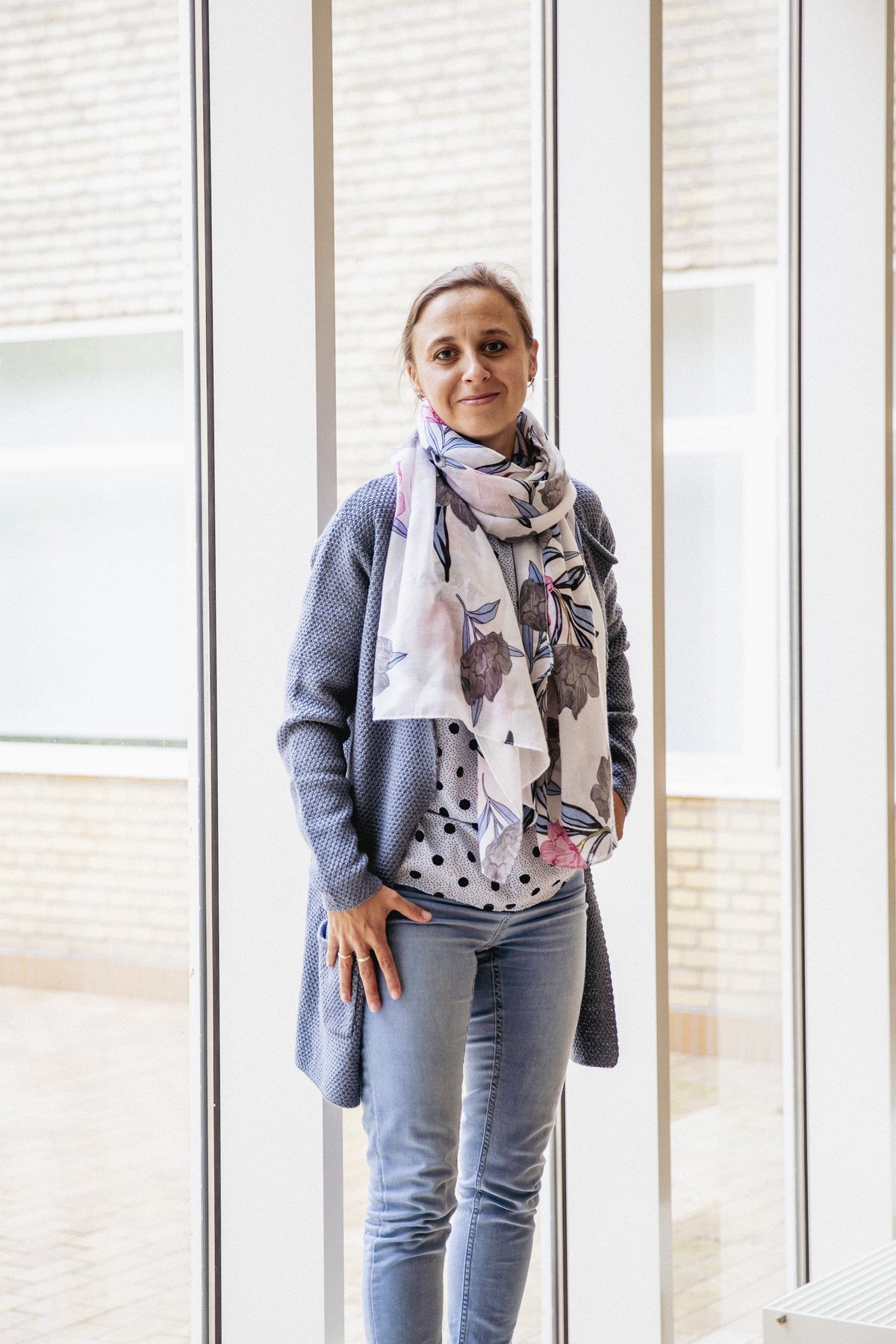“My soul is in Ukraine”
It’s more or less a coincidence that Anastasiia Sydorenko, who has a PhD in psychology and medical sciences, ended up in Denmark on a Ukraine Fellowship at AIAS. And she insists on making the most out of the opportunity for professional growth the fellowship gives her – despite the tragic events that have brought her here.

AUFF – UKRAINE FELLOWSHIP AT AIAS
With financial support from the Aarhus University Research Foundation (AUFF), in March this year, Aarhus Institute of Advanced Studies (AIAS) set up a fellowship for researchers from Ukraine who are unable to continue their research or research collaboration as a result of the Russian invasion. The fellowships provide researchers with a full salary and assistance obtaining work and residence permits.
Of the 115 who have applied, 18 have been offered a fellowship. 12 of these researchers have already arrived in Aarhus, and two are on their way.
The researchers were able to choose between a 6-month or a 12-month fellowship.
“I don’t want this to be a depressing story!” Anastasiia Sydorenko says firmly.
She’s just told me about how she and her family had fled Ukraine in mid-March. They locked the door to their apartment in Kiev and left it behind, with no idea of when they’d be back, with nothing but each other and a single suitcase.
Anastasiia, her husband and three children (aged eighteen months, five and four) also brought along the money they’d been saving up for their summer holiday. It was enough for a couple of months abroad. Exactly where they were going, Anastasiia Sydorenko and her man had no idea. But they decided to start by taking the train to Poland, and their journey began.
“The train trip took fifteen hours. There was no WC, and you couldn’t buy anything to eat or drink. The train was full, people were nervous and children were crying. I had to ask my children to be strong. The train stood still for hours several times during the trip – and finally, at some point in the evening they let us off the train to go to the bathroom outside,” she said.
Safe outside the city?
Anastasiia Sydorenko has a PhD in clinical psychology and medical science. Until she left Ukraine, she was an assistant professor at the Medical Psychology Department at Bogomolets National Medicinal University in Kyiv.
On February 24th, the day the war broke out, she was awaked by the sound of her father pounded on the door. It was six o’clock in the morning.
“He thought it would be safer in his house a little outside of town. So we packed a bag in all haste and left.”
But the war followed them.
“One day a Russian helicopter was shot down right outside our window. The children got scared, and I had to explain that this was ‘good noise’ – the sound of our soldiers protecting our fatherland.”
Alone on the playground
Anastasiia Sydorenko and her family moved back to Kyiv for a short period, thinking the city seemed safer.
“But one day when I was on the playground with my children, I noticed the stillness. We were the only family on the playground. The only thing I could hear in this big city was my children’s laughter and play, which sounded totally out of place in this tragic situation. I looked up, and I saw a rainbow around the sun, and my father told me it was because the air was so dirty on account of the war. That’s when I understood that I couldn’t put my kids through this.”
The family decided to leave Ukraine and go to Poland. As a general rule, all Ukrainian men between the ages of 18 and 60 are forbidden to leave Ukraine. But Anastasiia Sydorenko’s husband, who also has a background in medicine, was allowed to leave the country because he and his wife have three small children.
A huge opportunity
“When we got to Poland, my plan was just to find a place where my children could rest and where my husband and I could figure out a plan for our next step. But then I met a Ukrainian woman from London who asked us if we wanted to get on a bus to Denmark.”
The family thought it over briefly and decided to accept the offer. And not long after their arrival in Denmark, Anastasiia Sydorenko heard about the AIAS fellowships for Ukrainian researchers: she sent in her application immediately. Soon after, she was granted a 12-month fellowship, which she views as a huge professional opportunity.
“I’m very grateful. I’m privileged to come to an internationally recognized university like Aarhus University, and I’m going to do everything I can to get the most out of this opportunity to strengthen my position as a researcher.”
However, she admits that it can be difficult to concentrate on a research project when your home country – where you still have family, friends and colleagues – is at war.
“But I have to be disciplined about it, and I only check the news about the war in the morning and in the evening.”
Research into work environment within cardiovascular surgery
Anastasiia Sydorenko is affiliated with AIAS, but her office is at the Department of Psychology and Behavioural Science. She is drawing on her double expertise in psychology and medicine in her project, which focuses on the work environment within cardiovascular surgery – from the medical classroom all the way inside the operating theater.
“This is a culture characterized by a strict hierarchy and strong positions of power that’s difficult for junior doctors to assimilate into – not least for women. It’s also a workplace culture where there’s bullying, misuse of power and a harsh tone.”
Her research project involves doing a comparative study with students from Denmark and Ukraine, interviewing nurses and surgeons and finally producing a video based on interviews with retired doctors and surgeons. Her aim in all of these sub-projects is to document the culture.
“Ultimately, my goal is to identify the elements that can contribute to fewer medical errors, and that a higher level of safety and security is achieved for personnel and not least for patients.”
In limbo
When I ask how she’s doing now that her family is settled in Aarhus and she’s started on her research project, she replies:
“It’s still very new. But I feel safe. I feel welcome – there are Ukrainian flags everywhere, and my children are happy here. But on the other hand, it’s not at all the same as when you travel abroad in the normal way. I’m not here as a tourist. I’m in limbo, and my soul is in Ukraine.”




